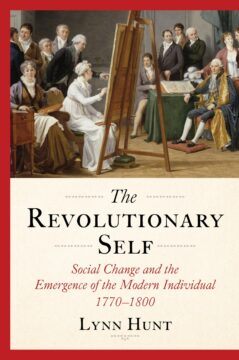Marjoleine Kars at the NY Times:

“Over the course of the 1700s,” Lynn Hunt writes in the opening of “The Revolutionary Self,” her study of the rise of modern individualism, “people in Europe and British North America came to have a happier view of human prospects.” The rosier perspective came from the perception that human beings, to varying degrees, could shape their own lives. Meanwhile, major political and social upheavals led to an understanding of society as a distinct entity with its own logic.
The simultaneous discoveries of the individual and society created, Hunt argues, a paradox. At the very moment that growing secularization was overtaking the idea of original sin, people also began to see themselves as molded, however subtly, by social forces like race, class and sexuality, “all the markers,” she writes, “given value by modern bureaucracies.” What helped people ditch a community based in divine order for one where free will and social determinism locked horns? The French Revolution. Hunt, a distinguished professor of European history and an expert in the French Revolution, is clear that the concepts she wants to explore are not easily captured.
more here.
Enjoying the content on 3QD? Help keep us going by donating now.
